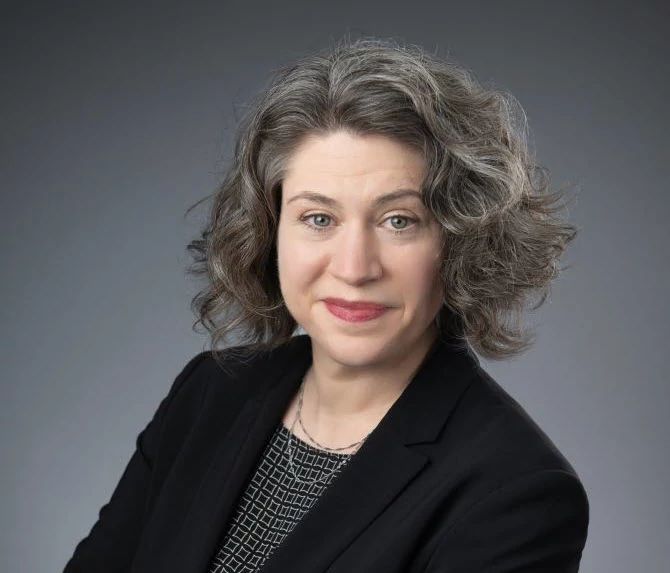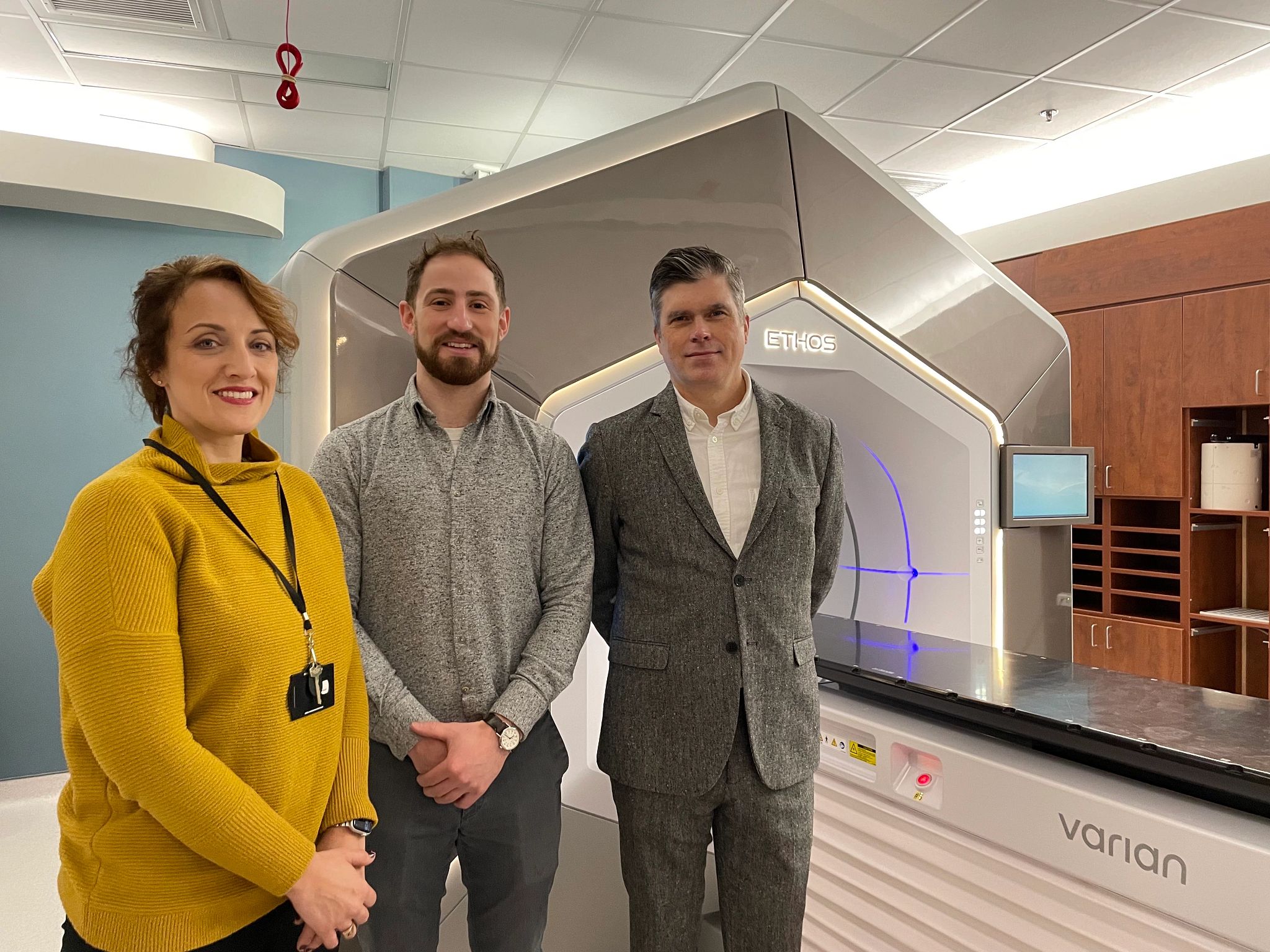This article is the first in an occasional series that will highlight activities at Nova Scotia Health in Canada, where Varian is working with clinical leaders to implement an Oncology Transformation Project that will streamline workflows and embed digitization, quality, and simplicity into every step of the cancer care journey.
Envision a comprehensive regional cancer care program that ties together all centers, urban and rural, all oncology disciplines, and the full cancer care continuum from diagnosis through survivorship and screening. Nova Scotia Health is bringing that vision to fruition with the support of the Province of Nova Scotia, and in partnership with Varian Medical Systems. This ambitious effort is aptly conceived as the Oncology Transformation Project (OTP), with emphasis on digital transformation. The five-year project is bringing together key oncology information systems to create a single access point for cancer patient referrals, triage, and treatment, which is expected to lead to streamlined care, reduced wait times, and improved outcomes for patients.
The OTP will expand upon and integrate Nova Scotia Health's existing Varian software capabilities to establish a unified, connected network of multi-disciplinary oncology software and services supporting patient care across ten centers, including regional centers located throughout the province. Together, Nova Scotia Health and Varian will focus on addressing the disjointed interactions and manual processes that impact patient care.
Optimizing patient care across the complete cancer care journey
To that end, Varian is providing Nova Scotia Health with a range of multi-disciplinary oncology solutions designed to connect cancer patients with their providers and optimize patient care across the complete cancer care journey – from screening to survivorship. Nova Scotia Health’s Cancer Care Program will be the first health system globally to install the Systemic Therapy Management (STM) module of Varian's ARIA CORE oncology management solution for patient and treatment management.
The STM solution is designed to digitize and streamline processes for systemic therapy prescribing, pharmacy dispensing, infusion operations, and drug administration. The unified ARIA CORE platform will serve as a true multi-disciplinary oncology information system to support the radiation, medical, gynecological, and hematology oncology programs. A key element of this digital transformation is a set of mobile platforms for patients (Noona) and providers (ARIA CORE Mobile). With Noona, patients can report symptoms, respond to questionnaires, consume educational materials, and communicate with their care team as often as they would like. ARIA CORE Mobile allows physicians and care teams to securely access the information in the ARIA CORE platform via their mobile devices anywhere Internet access is available.
Transformation within reach
As the medical director of the Oncology Transformation Project, Amanda Caissie, MD, PhD, FRCPC, Department Head & Associate Professor at Nova Scotia Health, aims to align clinical and research priorities with digital health solutions that advance research and innovation across the continuum of cancer care. “I have been waiting for this transformation for a very long time, and now it’s finally within our grasp. I’m looking forward to what comes over the next few years in terms of co-development opportunities with Varian and Siemens Healthineers,” said Dr. Caissie. In addition to providing digital health solutions for the OTP, Varian is supporting the vision with significant consulting and implementation resources through its Advanced Oncology Solutions (AOS) organization. “We are very appreciative of the expertise that is helping us move the OTP forward,” she added.

Nova Scotia Health has had a long and productive relationship with Varian for technology and research, which has provided the conditions for the province-wide Oncology Transformation Project. The Cancer Care Program in Nova Scotia, a long-time user of the ARIA oncology information system for “record and verify” in radiation oncology, is complementing its information infrastructure with the new ARIA Systemic Therapy Module, the Noona patient engagement solution, and the new, second generation (Gen2), of Varian’s InSightive Analytics solution. “OTP is game-changing. It is helping us use the digital health solutions that are provided by Varian to implement innovative models of care,” said Caissie.
Enabling a new paradigm in clinical flow and patient experience
One of these innovative models of care on the horizon is what James Robar, PhD, FCCPM, Chief of Medical Physics at Nova Scotia Health and co-chair of Varian’s Intelligent Imaging Consortium, describes as a digitally assisted, “direct-to-treatment workflow,” made possible by Varian’s Ethos adaptive therapy system, equipped with the HyperSight imaging solution. Following initial consult in the RO department, a reference plan is established on existing imaging for the patient, without the need for an appointment for CT simulation, eliminating additional steps that would have been necessary without these new technologies.
"The patient goes directly to the HyperSight-equipped Ethos unit, where a three-dimensional image is acquired in six seconds with exquisite image quality and Hounsfield Unit accuracy. Ethos calculates and adapts the plan directly on that image data with the patient on the treatment couch. The plan is reviewed clinically by the oncologist and technically by the physicist, who completes QA in the background. And then we treat. A two-week process is condensed to a couple of hours,” explained Robar.

This innovative direct-to-treatment workflow that Robar describes is part of the OTP vision. “I think this is where we’re going in terms of an emerging standard workflow. We started using Ethos less than a year ago, and it has completely changed my view of our processes in radiation oncology. In the near future, adapting daily will be as common and expected as daily image guidance.”
Dr. Caissie added, “We are excited by the prospect of implementing advanced radiation therapy techniques and treatments, such as Ethos adaptive therapy with HyperSight, and then have the comprehensive OTP program, with software capturing the data analytics in the back end to show the benefits to patients of what we’re implementing.”
Igniting OTP with the potential to link care to outcomes
A pivotal element of the OTP is the Noona application--Varian’s solution for patient engagement, and, in particular, the digital Patient Reported Outcomes (ePRO’s) that Noona enables. In fact, Dr. Caissie credits a pilot of Noona in selected centers and radiotherapy departments as instrumental in igniting the OTP. Noona aligns with the objectives of the Nova Scotia project: preserve patient health, promote better clinical outcomes, improve the patient experience, and support research. It enables patients to engage with their care teams in a structured way. It enables care teams to prioritize interventions and optimize resources. Ultimately, it provides outcomes data essential to drive research and evidence-based quality of care.
Nova Scotia Health has already implemented the patient engagement module of the Noona application, with additional capabilities to be phased in. “Noona has so much functionality that we haven’t touched on yet. The patient education module will be extremely powerful; it will allow us to create a program of standardized patient education and then be able to tailor it to individual patient needs. We’re also very keen on the phone triage platform of Noona. But in rolling out of functionality across the province, we have to be thoughtful about managing change and building teams to respond to the patient issues,” cautioned Caissie.
Offering final thoughts, Dr. Caissie believes that the Oncology Transformation Project should speak to everyone about what could be achieved in a cancer care program with the proper investment. “You need to invest,” she said. “It is investment in digital health solutions that is going to enable health care systems in Canada and globally to do things differently. We can’t keep implementing point solutions as we have been doing without a data-driven system that shapes our clinical and operational initiatives. We need to be using resources wisely, and the data system should help, because we urgently need an entire transformation of oncology.”
The information captured herein represents the genuine experience of the attributed individuals and may not necessarily represent the views of Varian or the above-referenced institutions. Individuals were not compensated for their participation.